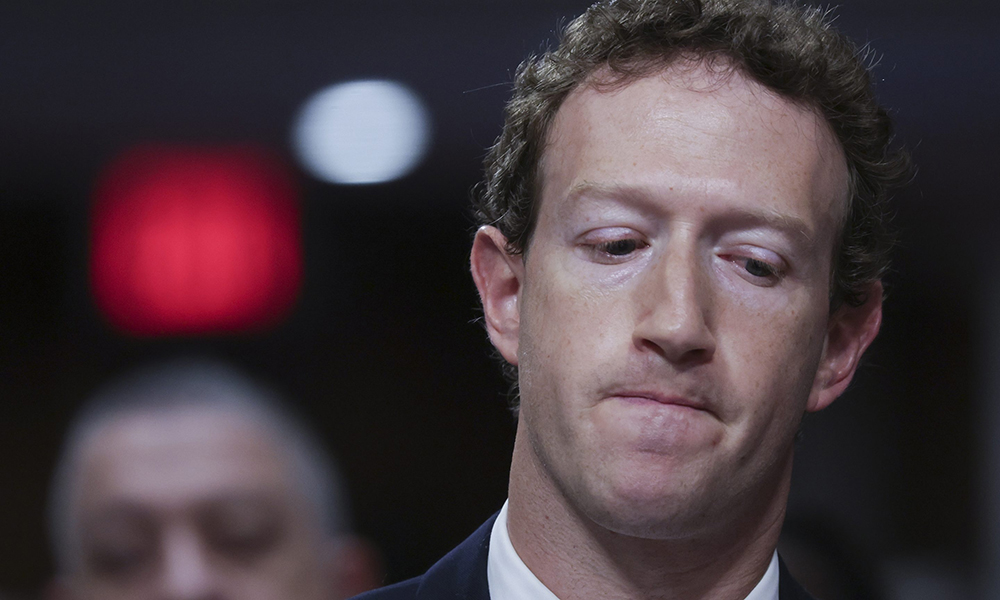
許多大型科技公司都在裁員“瘦身”。在過去的幾年里,這種企業裁員現象在科技行業已經屢見不鮮。
對于裁員背后的原因,知名營銷學教授和媒體經理斯科特·加洛韋有一套自己的理論,即人工智能。問題在于,許多高管不愿意承認他們裁員的目的是用人工智能取代人類。
加洛韋將此舉比作許多人通過服用減肥藥來減肥的公開秘密,并稱人工智能是“企業版司美格魯肽注射液”。
加洛韋在他的博客中毫不留情/毫無惡意(No Mercy/No Malice)地寫道:“我的論點是,公司(尤其是科技公司)也發現了一種減肥藥,但卻對此諱莫如深。最近的財經新聞有兩大特點:裁員和創紀錄的利潤。這兩者之間存在關聯。”
近幾個月來,大量科技公司進行了裁員。自2022年11月以來,硅谷的中堅力量Meta已經裁掉了大約2萬名員工。在取消自動駕駛汽車項目后,蘋果(Apple)可能會從其自動駕駛汽車部門裁減數百名員工。賽富時(Salesforce)在2023年裁員7,000多人后,今年年初又裁員約700人。今年1月,Alphabet的廣告銷售和硬件團隊進行了兩輪裁員,在2022年解雇了1.2萬名員工之后,又裁減了1,000多名員工。
加洛韋指出,所有這一切都發生在科技行業取得輝煌業績的時候。其中一些公司甚至公布了歷史性的數據:Meta宣布,2023年第四季度的營收達到創紀錄的401億美元,凈利潤則是上年同期的三倍。加洛韋表示,這種差異表明,這是一種戰略轉變,而不是源于對一家瀕臨倒閉的公司的調整需求。
加洛韋在帖子中寫道:“我相信人工智能在裁員中扮演的角色比首席執行官們愿意承認的要大得多。首席執行官們對此諱莫如深,至少在公開場合是這樣,原因是人們對人工智能這個美麗新世界感到恐懼。”
加洛韋拒絕置評。
到目前為止,科技公司還未曾表示裁員是向人工智能轉型的結果。事實上,IBM的首席執行官阿爾溫德·克里希納等人曾經指出,該公司在人工智能方面的投資意味著員工人數將會增加。其他公司,例如Alphabet,則明確表示,人工智能和裁員沒有關聯。Alphabet在2014年收購了開創性的初創公司DeepMind,并發布了聊天機器人Bard(現名為Gemini),成為人工智能領域的巨頭。
Alphabet的首席商務官菲利普·辛德勒在本月的財報電話會議上稱:“我們之所以進行重組,并不是因為人工智能奪走了工作崗位。這一點很重要。”
加洛韋說,正是這些否認“首先引起了我的注意”。他將司美格魯肽注射液的比喻延伸開來,把這些公司的聲明比作那些聲稱自己“戒掉麩質食品”來減肥的人,而不是承認自己已經開始服用減肥藥。司美格魯肽注射液讓減肥變得易如反掌,原因是它從根本上消除了饑餓感;在商業領域,人工智能也可以消除此類需求。在加洛韋看來,企業也會樂于消除對人類的需求。
加洛韋寫道:“如果消費者愿意每月支付1,000美元來減肥,從而不會產生饑餓感,那么一家公司會支付多少資金來實現以前無法想象的目標:在增加收入的同時降低成本?”
這并不意味著所有的工作崗位都將被淘汰。加洛韋認為,人工智能還將幫助員工增強工作能力,使公司能夠以更少的資源完成更多的事情。他寫道:“管理者可以制定新計劃或探索新領域,而不必為雇傭更多的員工感到頭疼。”
人工智能與人類和諧共處的未來工作場所的概念變得司空見慣。目前比較公認的一種觀點是,人工智能確實將取代死記硬背的重復性工作。在這種情況下,人工智能即便不是取代整個工作崗位,也很可能取代某些工作職能。但這并不意味著人工智能的影響能夠忽略不計: 國際貨幣基金組織(International Monetary Fund)預測,發達經濟體中約有60%的工作崗位將受到人工智能的影響。不過,其中大約一半工作的生產率會提高。高盛集團(Goldman Sachs)的另一項估計顯示,三分之二的工作崗位以及多達四分之一的現有工作崗位可能會受到影響。
所有這些對人工智能的新關注,確實意味著在該領域擁有專業知識的少數人將非常搶手。各家公司將爭相聘用這些人才,而許多科技公司已經在這樣做了,但這一趨勢正開始在美國企業界的其他部門蔓延。
加洛韋預測,明年,隨著人工智能在工作場所的使用越來越普遍,高管們將公開承認他們正在用人工智能取代人類的事實。當這種情況發生時,“專家們會在很長時間內感到不可置信,直到股價暴漲,然后隱藏在眾目睽睽之下的秘密將被公之于眾:[人工智能]是企業的司美格魯肽注射液。這并不關乎戒掉碳水,而是戒掉對碳水的欲望。也就是說,企業將不再需要雇傭人才。”加洛韋寫道。(財富中文網)
譯者:中慧言-王芳
許多大型科技公司都在裁員“瘦身”。在過去的幾年里,這種企業裁員現象在科技行業已經屢見不鮮。
對于裁員背后的原因,知名營銷學教授和媒體經理斯科特·加洛韋有一套自己的理論,即人工智能。問題在于,許多高管不愿意承認他們裁員的目的是用人工智能取代人類。
加洛韋將此舉比作許多人通過服用減肥藥來減肥的公開秘密,并稱人工智能是“企業版司美格魯肽注射液”。
加洛韋在他的博客中毫不留情/毫無惡意(No Mercy/No Malice)地寫道:“我的論點是,公司(尤其是科技公司)也發現了一種減肥藥,但卻對此諱莫如深。最近的財經新聞有兩大特點:裁員和創紀錄的利潤。這兩者之間存在關聯。”
近幾個月來,大量科技公司進行了裁員。自2022年11月以來,硅谷的中堅力量Meta已經裁掉了大約2萬名員工。在取消自動駕駛汽車項目后,蘋果(Apple)可能會從其自動駕駛汽車部門裁減數百名員工。賽富時(Salesforce)在2023年裁員7,000多人后,今年年初又裁員約700人。今年1月,Alphabet的廣告銷售和硬件團隊進行了兩輪裁員,在2022年解雇了1.2萬名員工之后,又裁減了1,000多名員工。
加洛韋指出,所有這一切都發生在科技行業取得輝煌業績的時候。其中一些公司甚至公布了歷史性的數據:Meta宣布,2023年第四季度的營收達到創紀錄的401億美元,凈利潤則是上年同期的三倍。加洛韋表示,這種差異表明,這是一種戰略轉變,而不是源于對一家瀕臨倒閉的公司的調整需求。
加洛韋在帖子中寫道:“我相信人工智能在裁員中扮演的角色比首席執行官們愿意承認的要大得多。首席執行官們對此諱莫如深,至少在公開場合是這樣,原因是人們對人工智能這個美麗新世界感到恐懼。”
加洛韋拒絕置評。
到目前為止,科技公司還未曾表示裁員是向人工智能轉型的結果。事實上,IBM的首席執行官阿爾溫德·克里希納等人曾經指出,該公司在人工智能方面的投資意味著員工人數將會增加。其他公司,例如Alphabet,則明確表示,人工智能和裁員沒有關聯。Alphabet在2014年收購了開創性的初創公司DeepMind,并發布了聊天機器人Bard(現名為Gemini),成為人工智能領域的巨頭。
Alphabet的首席商務官菲利普·辛德勒在本月的財報電話會議上稱:“我們之所以進行重組,并不是因為人工智能奪走了工作崗位。這一點很重要。”
加洛韋說,正是這些否認“首先引起了我的注意”。他將司美格魯肽注射液的比喻延伸開來,把這些公司的聲明比作那些聲稱自己“戒掉麩質食品”來減肥的人,而不是承認自己已經開始服用減肥藥。司美格魯肽注射液讓減肥變得易如反掌,原因是它從根本上消除了饑餓感;在商業領域,人工智能也可以消除此類需求。在加洛韋看來,企業也會樂于消除對人類的需求。
加洛韋寫道:“如果消費者愿意每月支付1,000美元來減肥,從而不會產生饑餓感,那么一家公司會支付多少資金來實現以前無法想象的目標:在增加收入的同時降低成本?”
這并不意味著所有的工作崗位都將被淘汰。加洛韋認為,人工智能還將幫助員工增強工作能力,使公司能夠以更少的資源完成更多的事情。他寫道:“管理者可以制定新計劃或探索新領域,而不必為雇傭更多的員工感到頭疼。”
人工智能與人類和諧共處的未來工作場所的概念變得司空見慣。目前比較公認的一種觀點是,人工智能確實將取代死記硬背的重復性工作。在這種情況下,人工智能即便不是取代整個工作崗位,也很可能取代某些工作職能。但這并不意味著人工智能的影響能夠忽略不計: 國際貨幣基金組織(International Monetary Fund)預測,發達經濟體中約有60%的工作崗位將受到人工智能的影響。不過,其中大約一半工作的生產率會提高。高盛集團(Goldman Sachs)的另一項估計顯示,三分之二的工作崗位以及多達四分之一的現有工作崗位可能會受到影響。
所有這些對人工智能的新關注,確實意味著在該領域擁有專業知識的少數人將非常搶手。各家公司將爭相聘用這些人才,而許多科技公司已經在這樣做了,但這一趨勢正開始在美國企業界的其他部門蔓延。
加洛韋預測,明年,隨著人工智能在工作場所的使用越來越普遍,高管們將公開承認他們正在用人工智能取代人類的事實。當這種情況發生時,“專家們會在很長時間內感到不可置信,直到股價暴漲,然后隱藏在眾目睽睽之下的秘密將被公之于眾:[人工智能]是企業的司美格魯肽注射液。這并不關乎戒掉碳水,而是戒掉對碳水的欲望。也就是說,企業將不再需要雇傭人才。”加洛韋寫道。(財富中文網)
譯者:中慧言-王芳
Lots of big tech companies are slimming down and cutting their workforces. This corporate trimming of the fat has become common in the tech sector over the past couple of years.
Well-known marketing professor and media impresario Scott Galloway has a theory as to what’s behind the layoffs: AI. The catch is many executives are hesitant to admit they’re laying off employees with the intent of replacing their jobs with artificial intelligence.
Galloway likens the move to the open secret many people use to lose weight themselves, calling AI “corporate Ozempic.”
“My thesis is that firms (notably tech companies) have also discovered a weight loss drug and are also being coy about it,” Galloway writes on his blog, No Mercy/No Malice. “Recent financial news features two stories: layoffs and record profits. These are related.”
A spate of tech companies have conducted layoffs in recent months. Meta, a Silicon Valley stalwart, has laid off around 20,000 employees since November 2022. Apple might be cutting hundreds of employees from its self-driving car unit after killing the project. Salesforce laid off about 700 employees at the beginning of the year after cutting more than 7,000 people in 2023. In January, across two rounds of layoffs that hit its ad sales and hardware teams, Alphabet laid off over 1,000 employees after handing out 12,000 pink slips in 2022.
All this comes, Galloway notes, as the tech industry has seen stellar business results. Some of them even delivered historic numbers: Meta announced a record $40.1 billion in revenue in the fourth quarter of 2023, while tripling net income compared with the same period the year before. The discrepancy points to a strategic shift rather than a need to rightsize an ailing company, according to Galloway.
“I believe AI is playing a larger role in layoffs than CEOs are willing to admit,” Galloway writes in the post. “CEOs are being coy about this, at least in public, because there’s a sense of fear surrounding the brave new world of AI.”
Galloway declined to comment.
So far, tech companies have not said their layoffs were the result of a transition to AI. In fact, some like IBM CEO Arvind Krishna have said the company’s investments in AI mean headcount will increase. Others, like Alphabet, which has been a juggernaut in AI with the acquisition of pioneering startup DeepMind in 2014 and the release of tools like its Bard chatbot (now called Gemini), were clear in saying AI and layoffs weren’t related.
“We’re not restructuring because AI is taking away roles—that’s important here,” Alphabet chief business officer Philipp Schindler said on an earnings call this month.
It was those denials that “first raised my antennae,” Galloway says. Extending his Ozempic analogy, he likens these corporate statements to people who say they “cut out gluten” to lose weight, instead of admitting that they’ve started taking the weight-loss drug. Ozempic makes it easier to lose weight because it essentially eliminates cravings; in business, AI can eliminate a craving Galloway believes companies would be happy to do away with.
“If consumers are willing to pay $1,000 a month to lose weight without cravings, what would a corporation pay to achieve the previously unthinkable: reducing costs while growing revenue?” Galloway writes.
That doesn’t mean all jobs will be eliminated. Galloway believes AI will also help employees augment their work, allowing for companies to do more with less. “Managers can take on new initiatives and domains without the headache of hiring more humans,” he writes.
The concept of a future workplace where AI and humans work in harmony is becoming increasingly common. One of the more accepted views now is that AI will simply replace rote, repetitive work. In that scenario, AI is likely to replace certain job functions if not entire roles. That doesn’t mean AI’s effects will be negligible: The International Monetary Fund predicts some 60% of jobs in advanced economies will be impacted by AI. Roughly half of them, though, could see productivity go up. Another estimate from Goldman Sachs says two-thirds of jobs, and up to one-fourth of current work, could be affected.
All that new focus on AI does mean the few people with expertise in the field will be in high demand. Companies will be eager to hire these people, and many of the tech companies already have, but the trend is starting to proliferate in other sectors across corporate America.
Galloway predicts over the next year, executives will be open about the fact they’re replacing people with AI as its usage in the workplace becomes more common. When that does happen, “pundits will clutch their pearls for a hot minute until the stock explodes, and the secret hiding in plain sight will be visible to everyone: [AI is] corporate Ozempic. It’s not about less bread, but less craving for bread. Read: hiring people,” Galloway writes.






